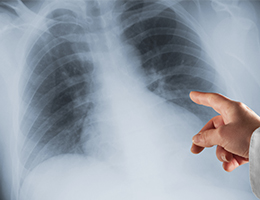
We may not always notice it, but our lungs are constantly on the job. A person at rest breathes about 12 to 15 times per minute, according to the American Lung Association.
Here's a closer look at what happens in the lungs during each breath.
Oxygen in, carbon dioxide out
Each breath brings nourishing oxygen to the body's cells and removes waste in the form of carbon dioxide. This exchange is accomplished over an area larger than you'd probably guess: The surface area of the lungs is about the size of a tennis court.
The process begins when you breathe in. Muscles in the chest contract to expand the rib cage and allow the lungs to fill. Air enters through the mouth and nose and travels down the throat into the trachea. This windpipe branches into two tubes called bronchi, each of which connects to a lung.
Inside the lungs, each bronchial tube branches and divides, forming thousands of smaller and smaller tubes called bronchioles.
Air travels through these bronchioles to its final destination, tiny air sacs called alveoli. Each lung has millions of alveoli.
Alveoli have very thin walls and are surrounded by small blood vessels called capillaries.
As you finish breathing in, the alveoli and capillaries make an exchange: Oxygen leaves the alveoli and is carried away by the blood to cells throughout the body, and carbon dioxide moves from the blood into the alveoli. The muscles in the chest then relax, decreasing the size of the rib cage and pushing the air—now filled with carbon dioxide—out of the body.
Guarding against invaders
In addition to allowing us to breathe, the lungs also help defend the body from infections, pollution and other foreign substances.
The lungs manufacture a sticky mucus that traps these particles so they can't reach the deep lung.
The body clears excess mucus and irritants from the lungs through a familiar reflex reaction we call a cough, when foreign particles are loudly and forcefully expelled, or by moving them to the mouth, where they are swallowed.
Breathe easier
To keep your lungs healthy, doctors say it's important to exercise, drink plenty of fluids and, perhaps most important, avoid smoking. Getting recommended vaccinations for the flu and pneumonia can also help protect the lungs.
Learn more about your lungs and how to keep them healthy at the American Lung Association's website, lung.org.
Reviewed 12/11/2024